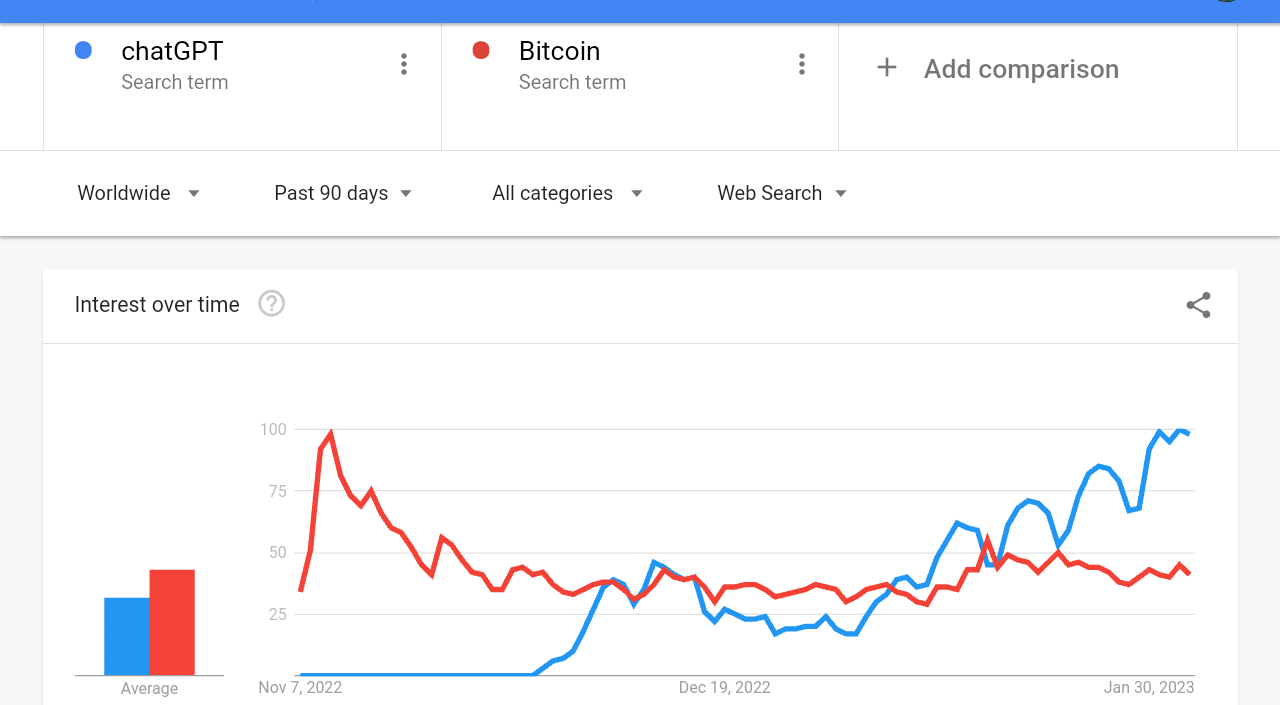OpenAI chief technology officer Mira Murati has called for regulation of the company’s wildly popular chatbot ChatGPT and other generative AI tools to prevent companies from deploying the tech irresponsibly.
Murati’s comments contrast sharply with those of early Bitcoin visionaries who emphasized freedom, autonomy and democracy. But some new movers have welcomed regulation as a solution to the trust problems that have affected the cryptocurrency industry.
Also read: Google’s AI Bard to rival ChatGPT
“It’s important for OpenAI and companies like ours to bring this into the public consciousness in a way that’s controlled and responsible,” Murati said in a recent interview with Time Magazine.
“But we’re a small group of people and we need a ton more input in this system and a lot more input that goes beyond the technologies – definitely regulators and governments and everyone else,” she added.
Growing AI impact
ChatGPT is an AI-powered tool that generates human-like responses on almost every topic. It can write complex essays, poetry, code and even pass MBA exams at the Wharton School of Business.
The software has set the Internet on fire since OpenAI launched the chatbot in November 2022. In January, ChatGPT reached 100 million active users, making it the fastest growing Web application in history.
When Mira Murati was asked whether it was too early for policymakers and regulators to get involved, over fears that government involvement could slow innovation, she said:
“It’s not too early. It’s very important for everyone to start getting involved, given the impact these technologies are going to have.”
Murati also spoke about the dangers of artificial intelligence (AI) and how OpenAI was responding to those threats.
“[AI] can be misused, or it can be used by bad actors. So, then there are questions about how you govern the use of this technology globally. How do you govern the use of AI in a way that’s aligned with human values?” she stated.
“This is a unique moment in time where we do have agency in how it shapes society. And it goes both ways: the technology shapes us and we shape it. There are a lot of hard problems to figure out… And it’s important that we bring in different voices, like philosophers, social scientists, artists, and people from the humanities.”
ChatGPT surpasses Bitcoin in Google search
Searches for ChatGPT on Google have risen sharply over the last few months as interest in artificial intelligence continues to gather pace.
According to Google Trends, ChatGPT surpassed Bitcoin among popular search terms for most of January. The global Google searches for the word ‘ChatGPT’ peaked at a popularity score of 100 as of Feb. 2, compared to 45 for Bitcoin.
This is significant. At the beginning of November, when ChatGPT launched, the tool had a score of under 1. At the time, Bitcoin’s popularity score was 94. Search terms such as “crypto” and “Bitcoin” have declined in recent months, mainly due to the current bear market.
As shown in the graph below, searches for ChatGPT are more than double those of Bitcoin, even when the BTC price surged to more than $23,800 in recent days.

However, Murati’s calls for AI regulation are in stark contrast with the foundational principles of Bitcoin of privacy and autonomy. Bitcoin was conceived as an anti-authority invention where unmediated business is done peer-to-peer, away from regulatory oversight.
Has regulation helped curb Bitcoin illicit activity?
While the lack of internal controls, requiring users to utilize their own discretion, has been exploited by those with criminal motives, things are beginning to change. Illicit Bitcoin activity dropped sharply over the past decade and now accounts for under 1% of BTC usage.
Crypto analyst PlanB posted a chart on Twitter showing how crime-related use of Bitcoin fell between 2012 and 2020. “Less than 1% of Bitcoin usage is associated with ‘crime,’” said the pseudonymous Dutch investor, inventor of the stock-to-flow (S2F) model.
The chart from the Chainalysis Crime Report 2022 shows that illicit activity involving Bitcoin peaked at about 7% in 2012. It fell sharply to 1% the following year after the shutdown of Ross Ulbricht’s Silk Road darknet marketplace (DNM).
Bitcoin scams virtually ground to a halt in 2017 and 2018 following the closure of AlphaBay DNM. It picked up somewhat in 2019 to the current levels of under 1%. Thanks to the $2.25 billion PlusToken Ponzi scheme.
Less than 1% of bitcoin usage is associated with "crime". pic.twitter.com/ghkeITahhL
— PlanB (@100trillionUSD) December 3, 2022
Observers say the declining illicit Bitcoin activity may be the result of regulation. It is this regulation which helped to bring transparency and credibility to the Bitcoin network. Bitcoin may have resisted regulation earlier on in its life, but governments eventually had their say.
Regulators tightened their grip on cryptocurrency following the multi-billion-dollar collapse of the Terra blockchain in May 2022. More recently, the spectacular collapse of FTX exchange means regulation has become a major focal area for governments all around the world.
Across the world, government agencies are targeting crypto investors not only with taxes but mandatory registration and full disclosure rules. State regulation appears to be the price the crypto community will have to pay for assimilation into the mainstream economy.
For OpenAI CTO Mira Murati, embracing governmental regulation now, rather than later, may be key to preventng future failures that impact negatively on the public.









 and then
and then